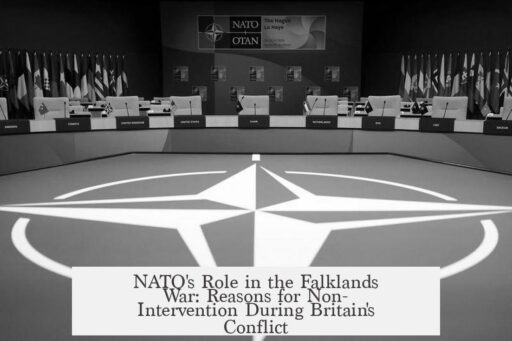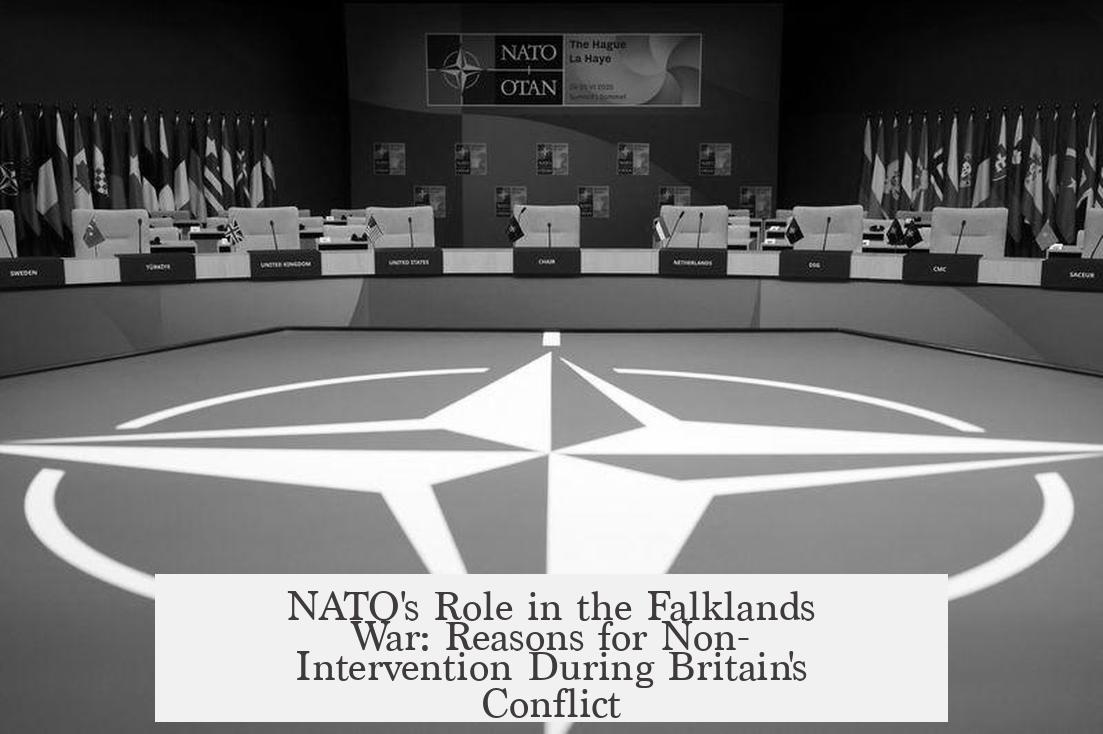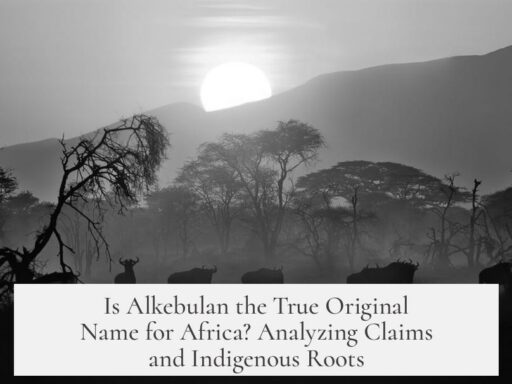NATO did not join the Falklands War despite Britain being attacked primarily due to the alliance’s geographic limits and original purpose. The Falkland Islands lie outside NATO’s treaty area, and the conflict was seen as a colonial dispute rather than a NATO defense matter.
The North Atlantic Treaty, signed in 1949, confined NATO’s collective defense obligations to the North Atlantic area north of the Tropic of Cancer. Article 6 of the treaty specifically defines the geographical scope for invoking collective defense (Article 5). This means territories south of the Tropic of Cancer—such as the Falkland Islands—are excluded from NATO’s formal protection. Consequently, attacks on Britain’s overseas territories in the South Atlantic do not trigger NATO’s mutual defense commitments. Notably, this also excludes U.S. territories like Hawaii, Guam, and Puerto Rico.
NATO was formed with a clear strategic goal: to defend Western Europe against Soviet expansion during the Cold War. Its focus was on continental security. The alliance’s founders, particularly the United States and non-colonial European countries, insisted on limiting NATO’s involvement strictly to defending member countries and their territories within the treaty’s geographical boundaries. Colonial conflicts were deliberately excluded. This restriction aimed to prevent NATO from becoming entangled in colonial disputes or wars of decolonization, which could distract from its central purpose.
Additionally, many NATO members who held colonies initially accepted that NATO would not intervene in colonial matters. This separation was institutionalized to avoid conflicts within the alliance over colonial policies. Even when colonial conflicts arose, such as France’s efforts to retain Algeria, NATO members outside the colonial powers opposed extending the alliance’s military support, leaving colonial conflicts as bilateral matters rather than NATO operations.
During the Falklands War in 1982, Argentina invaded the Falkland Islands, a British overseas territory. Argentina was viewed by the United States as an anti-communist partner in the South Atlantic region, and Washington initially declared neutrality. This stance reflected the broader U.S. global strategy of maintaining alliances against the Soviet Union that sometimes conflicted with support for traditional allies.
Despite official neutrality at the war’s start, the U.S. soon provided substantial material and logistical support to Britain. This included military aid and filling defense gaps in the North Atlantic, as the UK had diverted much of its Royal Navy to the South Atlantic campaign. Other NATO members, guided by their alliance with the UK but mindful of NATO’s limited scope, also offered political and material support, but stopped short of treating the conflict as a NATO mission.
The war’s political and military support was unofficial and bilateral rather than a collective NATO action. Spain, a recent NATO member at the time, was the exception and did not endorse official backing for the UK. For most NATO countries, the Falklands War remained a British operation outside the alliance’s defensive framework.
In summary, NATO’s non-involvement in the Falklands War arises from these key factors:
- The NATO Treaty limits collective defense to the North Atlantic area north of the Tropic of Cancer, excluding the Falklands.
- The alliance’s original mission centers on collective defense against Soviet threats in Europe, not colonial or overseas territorial conflicts.
- Member states’ colonial policies are treated as national issues, not NATO matters.
- U.S. strategic interests led to initial neutrality but shifted toward supporting Britain unofficially.
- No formal NATO military action was taken—the UK fought alone within the alliance framework.
This case exemplifies how NATO’s design restricts its role to specific regions and threats, prioritizing European security during the Cold War over broader global conflicts involving member states.
| Factor | Explanation |
|---|---|
| Geographical Scope | Collective defense only applies north of the Tropic of Cancer; Falklands lie south, outside NATO’s defensive perimeter. |
| Original Purpose | Focus on defending Western Europe from Soviet threat, not involving colonial or overseas disputes. |
| Colonial Conflicts | Treated as national or bilateral matters; NATO deliberately avoided engagement in these. |
| US and NATO Members’ Position | U.S. initially neutral, later provided material support; other NATO allies offered backing without official NATO involvement. |
- NATO’s defensive treaty geographic limits exclude the Falkland Islands.
- The alliance’s mission is Europe-focused, not colonial enforcement.
- Colonial conflicts remain outside NATO’s remit.
- U.S. interests led to unofficial support for the UK.
- The UK acted independently within NATO without triggering collective defense.
Why didn’t NATO also join in the Falkland Wars when Britain was attacked?
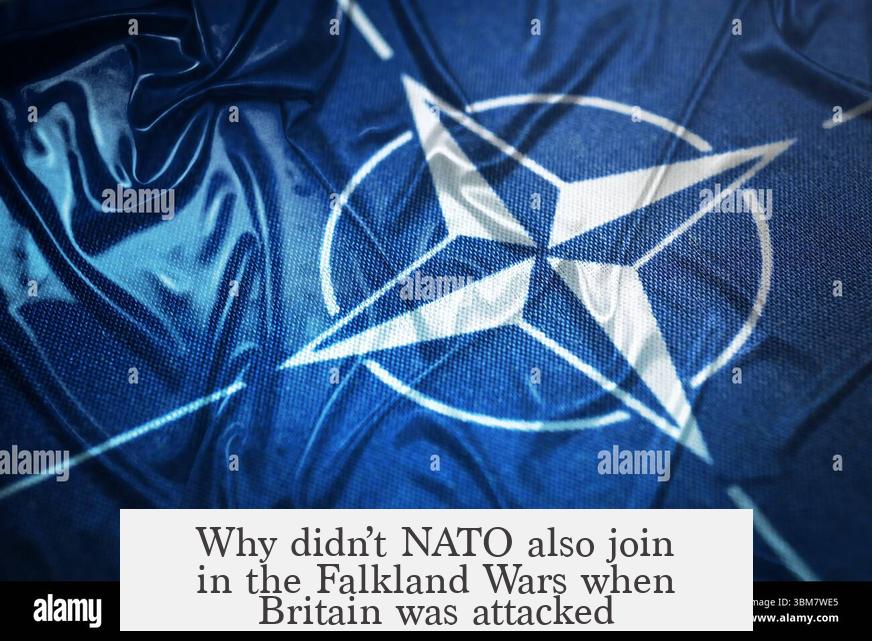
Simply put: NATO did not join the Falklands War because the Falkland Islands lie outside NATO’s geographic defense zone, which is limited to the North Atlantic area north of the Tropic of Cancer. This wasn’t a loophole or political trick. It’s a clear-cut rule embedded in the 1949 NATO Treaty. Let’s unpack why this matters and how it shaped NATO’s stance during the 1982 Falklands conflict.
Spoiler alert: The answer involves geography, history, colonial politics, and Cold War math. Yes, it’s a cocktail of factors, but pretty logical once you break it down.
Geography: The Invisible Boundary
NATO was formed in 1949 with a specific mission: collective defense against Soviet aggression in Western Europe. The Treaty’s Article 5 guarantees that an attack on one member is an attack on all, but it draws a precise line on where this protection applies.
“For the purpose of Article 5, an armed attack… is deemed to include an attack on… the Islands under the jurisdiction of any of the Parties in the North Atlantic area north of the Tropic of Cancer.”
Where does that place the Falkland Islands? Way south of this line, in the South Atlantic Ocean. In fact, much of Britain’s overseas territories, including Hawaii, Guam, and Puerto Rico for the U.S., are outside NATO’s official defense boundary.
So while the UK faced aggression in the Falklands, NATO’s mandate didn’t cover that region. It’s like having a local neighborhood watch group—you wouldn’t expect them to show up for trouble a few counties over.
NATO’s Core Purpose: Cold War European Defense
NATO started as a strictly defensive military alliance focused on the Soviet threat. The U.S. and Western European NATO members agreed early on to keep the focus tight—protect Western Europe, not get dragged into colonial skirmishes across the globe.
The United States, leading the alliance, pushed hard to keep NATO from becoming a tool for colonial powers to legitimize wars in their overseas territories. They knew that spreading NATO’s mission thin would dilute the focus on the Soviet threat.
Remember, Britain, France, and other members had inherited or still held overseas colonies in 1949. They accepted that NATO wouldn’t cover conflicts in these areas. This was a political decision as much as a strategic one.
Colonial Conflicts and NATO’s Limits
When decolonization pushed colonial powers into wars to maintain control, NATO’s non-colonial members opposed dragging the alliance into these fights. For example, France’s brutal Algerian conflict in the 1950s and early 1960s saw no NATO backing. Instead, France faced international opposition and had to settle the issue alone by 1962.
This created a clear precedent: NATO’s military help was reserved for collective defense against external attacks in Europe and North Atlantic territories above the Tropic of Cancer. Colonial struggles did not qualify.
The Falklands War: A Test Case
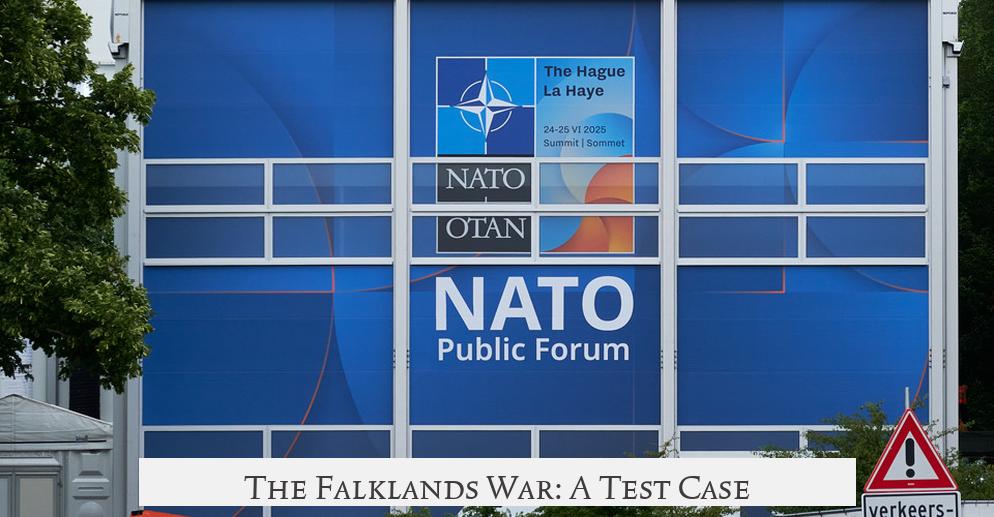
Fast-forward to 1982. Argentina invades the Falkland Islands, triggering a war with the UK. Everyone wonders: Why doesn’t NATO step in to back Britain officially?
Here’s the twist. At first, the United States declared neutrality. This wasn’t out of indifference. Argentina was seen as a useful ally against communist influences in South America. Supporting the UK openly could risk alienating Argentina and pushing it toward the Soviet camp.
Still, the UK needed help. The U.S. quietly provided huge unofficial material support — including intelligence sharing and logistical aid. Critically, the U.S. navy filled the defense gap in the North Atlantic, since Britain committed much of its Royal Navy to the South Atlantic action.
Other NATO members, except the recently joined Spain, also offered official support to Britain, but this support wasn’t collective NATO action. The alliance as an entity stayed above this fray. It played by the rulebook.
So, what does this all mean?
NATO didn’t join the Falklands War because:
- The Falklands lie beyond NATO’s geographic defense limits defined in the 1949 Treaty.
- NATO was designed for Cold War defense against the Soviet threat in Europe, not colonial wars or overseas conflicts.
- Allowing NATO into colonial conflicts risked fracturing the alliance due to differing member interests and global politics.
- The U.S. balanced geopolitical interests by unofficially supporting the UK while maintaining official neutrality at first.
Think of NATO as a tight-knit neighborhood security group with strict geographical boundaries. If your house is across town, they might cheer you on, maybe even lend some gear unofficially but won’t rush over with sirens blaring.
Lessons and Reflections
This case highlights the importance of understanding an alliance’s limits. The Falklands War reminds us that military alliances aren’t catch-all protectors for every conflict involving their members. Politics, geography, and history define their boundaries.
For the UK, the war was a test of independent military strength, not alliance power. For NATO, it underlined the alliance’s focused mission—and the tricky balance of global politics during the Cold War.
And if you ever wonder why an alliance doesn’t “have your back” in certain conflicts, it likely boils down to similar clear but sometimes invisible rules. Always read the fine print!
Final Thought
NATO’s response—or lack thereof—to the Falklands War wasn’t neglect or snub. It was a practical application of treaty limits and geopolitical reality. And yet, support still came through other channels, proving alliances can be strong in different ways. Sometimes, backing your allies means fighting the Cold War your own way, not theirs.
